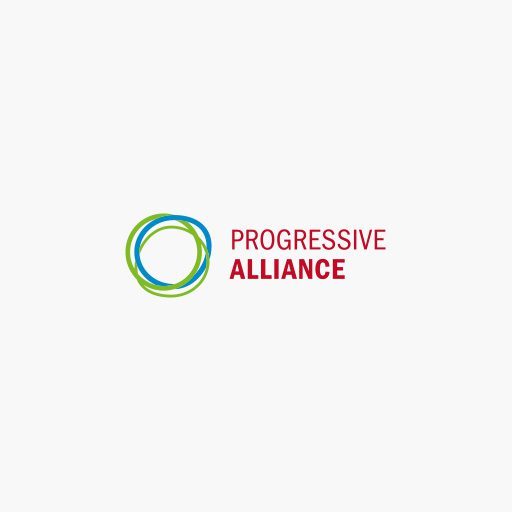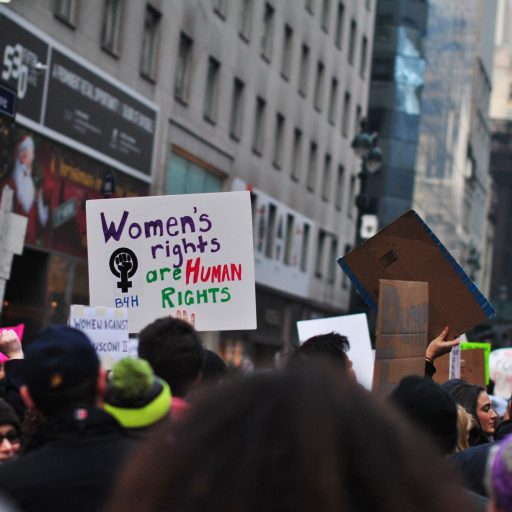The political upheavals that have taken place in the Arab world since the end of 2010 are closely connected with the hope for an economic upswing, the creation of jobs and greater social justice.
1. Social justice instead of rising inequality
The depressing social and economic situation of large parts of the population in the Arab world was, along with the determination to overcome outdated, autocratic and undemocratic structures, an important stimulus for the protest movements in many countries. The demonstrators expressed all this in their call for “bread and dignity”. In many countries of the Middle East and North Africa new possibilities of political participation emerged for groups of society which were marginalized before. Especially young people and amongst them many women have taken on leading roles as initiators and organisers of civilian and political commitment.
Nevertheless, the politics in most of the Maghreb and Mashreq countries are still based on a more or less neoliberal economic and development model. Slow economic growth despite a rapidly growing population, strong dependence on oil and gas and low productivity due to a low level of industrialisation are characteristic for the region and go hand in hand with high unemployment and low wages. Not only in this region this same neoliberal model often goes hand in hand with traditional society structures which have a negative effect on the position of women in these societies.
Such dramatic social inequality has a negative effect on development in these countries, both in social, political and economic terms. Currently, the social security systems in many countries are inadequate and require urgent reform, and the proportion of people in formal employment is dropping. At the same time, the informal employment sector, which offers no form of protection or welfare provisions, is increasing drastically. Since women are over-represented in lower paying jobs and in the informal sector they are the most affected by this situation. Hopes of social advancement through education remain unfulfilled in many places, as is demonstrated by the high rate of unemployment among academics, since the job markets in this region still offer very few opportunities for well-educated young people. The countries have not yet been able to stop the brain drain that has been going on for decades. Young people have hardly any perspectives in their own country.
Up to now, this difficult social and economic situation has changed very little since the upheavals started. Governments have found no other answers to the urgent need for reform than the vague hope that neoliberal economic policies will induce a trickle-down effect, which unfortunately has not been the case up to now. It is time we frame our economies that promote bottom up, inclusive growth, not top down.
In the meantime, progressive elements, social democrats and socialists are not the only groups who are warning about the negative consequences of deepening social inequality. Recently, Christine Lagarde, head of the International Monetary Fund, warned that “rising inequality can damage economic growth and social ties, and may also cause political instability”. The authors of the 2014 Global Risks Report published by the World Economic Forum in Davos consider the increasing gap between rich and poor to be the greatest potential threat to the global economy. Of all possible risks, the report considers increasing income disparity to be the factor that is most likely to cause “serious damage” on a global scale in the coming decade.
2. Growing global inequality
In the past 25 to 30 years, income and wealth distribution has radically changed on a worldwide scale due to the growing spread of neo-liberalism since the 1980’s, the accompanying deregulation of the financial markets, the end of system competition following disintegration of the East Block, and accelerated globalisation of the product, financial and labour markets.
Social injustice between the poor and the rich is shown by the fact that one percent of the world population owns almost half of the worlds’ assets. But only 1 percent of the worlds’ assets are owned by women. These numbers clearly show the social inequality between the genders – between women and men and girls and boys.
Measured against the average per-capita GNP, income disparities between the rich and the poor countries increased greatly between 1980 and 2000. In the past few years, thanks to the high growth rate in emerging and developing countries, differences in income have decreased slightly – initially only in relative terms and, since 2007, in absolute terms as well. As opposed to this, income disparities have increased greatly within most countries and continue to do so.
A lot of countries, especially in Asia, are catching up on the ‘traditional’ industrial countries. But here, too, it is the elite, the top 10 percent, and to some degree also a newly-emerging middle class who are gaining from this development. People in the lower 40 percent of the income scale reap very little benefit. Global inequality, which is a combination of inequality between states and inequality within the individual countries, therefore continues to deepen. It is estimated that the richest 20 % of the world’s population earns 50 times more than the poorest 20 %.
- Rising income inequality within countries is the result of three different but interrelated trends.
First of all, functional income distribution between wages and profits, between earned income and capital gains has shifted on a global scale in favour of profits. The results are a progressive concentration of wealth and a shrinking middle class.
At the same time, the spread of earned incomes has increased dramatically in some sectors, especially when it comes to salaries at management level. Meanwhile, economic growth and the material wealth of the vast majority of the population have undergone separate developments in many countries. For example, in the present-day USA, 95 % of all rises in income since 2009 can be attributed to the richest one percent of the population. In other countries, too, there are tendencies similar to those in America, i.e. the gains from growth concentrate on a small class of rich and mega-rich individuals.
Thirdly, in some states, the correction of personal income distribution by means of taxation and social transfer policies has lessened. In many states, the concept of progressive taxation has been weakened considerably in the past decades. In global terms, between 1990 and 2012, the disparity in disposable income increased in a total of 65 of the 130 countries for which appropriate data are available. Although this is only half of the countries examined, the respective states represent two thirds of the world’s population.
- One of the regions where the trend towards greater income inequality has been curbed is Latin America. Even though Latin America and the Caribbean, along with Africa, remains the region with the greatest income disparity, the Gini coefficient, i.e. the concentration of income distribution, of 14 of the 20 Latin American countries for which data are available, declined between 1990 and 2012.
Wherever personal income distribution has improved, this can be largely traced back to three factors: expansion and improvement in the quality of secondary school education and active state-controlled minimum wage policies which, together, have led to a drop in the inequality of earned income, and new government transfer programmes to benefit the poor and which have improved personal income distribution at the lower end of the income scale.
- Disparity in the distribution of wealth is much greater than the disparity in earned income. The wealth of the world can be divided into two parts: almost half of the world’s wealth is owned by one percent of the world’s population and the other half is shared by the remaining 99 %. On the other hand, the poorest half of the world’s population owns less assets than the 80 richest people in the world (Oxfam). In reality, the actual concentration of wealth is probably even more blatant.
In the course of globalisation, a lot of tax evasion and tax fraud opportunities were created by introducing transfer prices within transnational concerns, by the liberalised movement of capital and by toleration of tax havens. Nowadays, a considerable proportion of rich people’s wealth is stowed away in so-called tax havens. It is estimated that approximately 18.5 billion of untaxed US dollars are held offshore.
- Women’s employment, earnings and working conditions are still not in line with those of men. According to the ILO globally, the labour force participation rate for women is 50 per cent, compared to 77 per cent for men. Worldwide, women earn approximately 77 per cent of what men earn and continue to be primarily responsible for household chores and family responsibilities. While 51 per cent of ILO member States provide at least 14 weeks maternity leave, this still leaves millions of women without the fundamental right to adequate maternity protection. Worldwide, a substantial part of the female workers continues to be marginalized and too many women are faced with violence and discrimination.
3. Policies to achieve social justice and equal opportunities for all
- A well developed democratic system, with political freedom, free speech, press freedom and the rule of law, is fundamental to achieve economic development, social justice and equal opportunities for all.
- Minimum wages are a central element in reducing the income gap ‘from the bottom up’. There are several models of how statutory minimum wages and the areas where they should be applied can be determined. Worldwide experience has shown that minimum wages are a major element in the creation of more market revenue, in particular for poorer sections of society.
- The strength and role of the trade unions have had a huge influence on wage and salary structures. The organisational and negotiating powers of the trade unions help to substitute the wage earners’ lack of market power – sometimes in conjunction with government regulation – for example by declaring collective agreements negotiated by trade unions and employers to be applicable for all employees. The trade unions are our major partner in our efforts to replace informal and untypical labour relationships by ‘decent work’. For this reason we, as progressive parties, seek to expand our alliances with the trade unions. Likewise, in other less industrialised economies in developing countries where trade unions are absent, small or ineffective, and civil society organisations are fighting against inequality, discrimination in wages, undecent working conditions, child labour etc., Progressive Parties should reach out to such NGOs and support their actions.
- Strong trade unions can also help to enforce productivity-oriented wage policies which take both productivity and the inflation rate into account. In order to ensure that overall economic demand remains in step with increased productivity, we need such wage policies to prevent the further development of income distribution to the detriment of the wage share.
- At the top end of the income scale, the outrageously high salaries of managers and bankers have to be curbed. This involves putting a lid on all salaries, including agreed severance payments and pensions, paying out bonuses for assumed profits with a delay of several years and being able to retrieve them at a later date if losses are incurred. These demands are often voiced during financial crises and in the context of government-backed rescue packages worth billions of dollars or euros. It is our duty to ensure that they are actually implemented.
- State redistribution programmes which ensure minimum incomes for the poorer parts of society, such as Brazil’s ‘Bolsa Familia’, a highly successful social welfare system in which recipients are bound to certain conditions, are a further important element in efforts to achieve more equality. The ‘Social Protection Floor’ developed by the International Labour Conference ensures access to essential healthcare and determines the general principles of basic social security guarantees that then serve as a guiding principle for progressive politics.
- Especially in times of crisis, state employment programmes, in addition to short-time work, working time accounts and reasonable protection against unfair dismissal, contribute directly and indirectly to improving the income situation at the lower end of the scale by way of the income they generate and by a corresponding reduction of available labour. These possibilities must be used more widely to provide more effective protection to poorer groups who are particularly vulnerable in times of crisis.
- The system of state redistribution is based on taxation. But not all taxation models are progressive and tax individuals according to their financial capability, i.e. demand that better earners pay higher taxes than lower earners. Not only, but above all, in developing countries, where tax revenue is often largely collected in the form of indirect taxes such as consumer taxes or import duties, the poorer sections of the population who spend the largest part of their income on everyday consumption, bear a disproportionally larger burden than the rich. For this reason, we are fighting for a taxation system that is progressive in a dual sense: a taxation system that is financed largely by direct taxes, namely income tax and corporate tax, but which, in turn, should have a progressive structure. At the same time, low incomes should be exempted from taxation by granting generous allowances. Similarly, capital income should be treated in the same way as earned income, which is usually more heavily taxed at present.
- Financial transactions are one of the few economic transactions that are either fully or largely exempt from taxation in most countries. This gap should be closed and a financial transactions tax should be introduced, last but not least due to the additional effect this will have in stabilising the financial markets.
- The fight for gender equality is a fundamental part of the battle against inequality. This means we want to increase awareness of the problems that persist without scaring away from taboos. It also means taking action to increase participation of women on the labour market and strengthening their position through equal wages. Still too few women occupy top positions in companies, on the labour market or in politics. To promote and encourage changes in this respect the support and cooperation of men is of undeniable value. The endeavour to reach maximum participation of women in top positions is a priority for us. We support the idea of gender quotas as a transitional instrument for increasing women’s political and economic representation and economic representation which is a step towards substantive equality with the aim to achieve a gender equality based democracy. Furthermore, fighting discrimination and abuse and providing universal access to public, affordable and high-quality health, education and childcare services are indispensable conditions to realize equality between women and men.
- The battle against inequality must also be fought at an international level. In particular the fight against tax evasion and profit-shifting as practised by transnational corporations and the fight to close down tax havens can only be won with the aid of international cooperation. The major industrial and emerging economies must finally reach appropriate agreements in the context of the OECD and G20. Also international trade is an instrument to promote decent work and fight inequality in the world. Trade agreements could and should be more used to improve labour and social conditions. Civil society organisations that serve as watchdogs to identify abuse deserve our full support. Moreover, companies that dodge the rules should be named and shamed and excluded from governmental programmes.
- Moreover, we also welcome the fact that the United Nations has now included the reduction of inequality within and among countries in its catalogue of sustainable development goals (SDGs)
4. Social justice and equal opportunities for all
The huge disparity in income and wealth as we experience it today is an urgent problem if justice is to be achieved within and among countries. Meanwhile, this growing inequality far exceeds what the majority of people in many societies commonly consider to be fair and in relation to performance. The level that unequal distribution is allowed to achieve while remaining socially accepted varies from one country to another. One thing is certain, modern society is still miles away from the convictions of the philosopher Plato, who already argued in ancient times that the income of the richest should be not more than four times that of the poorest.
Greatly unequal distribution of income and wealth also has specific economic, social and political consequences:
- Inequality endangers economic prosperity and can be directly attributed to a number of negative social developments.
- Inequality perpetuates unequal power structures and cements the levels of social opportunity, thus hampering social and intergenerational mobility; it consolidates persisting inequality between women and man, and makes the task of combating poverty more difficult.
- Inequality endangers social peace and political stability and, in the long term, undermines democracy. Even in supposedly well-established democracies, increasing material inequality nurtures the domination of political decision-making by financially well-disposed elite groups; in this way, governance of the people gradually develops into governance of money.
We advocate and support policies of social justice and equal opportunities for all.


